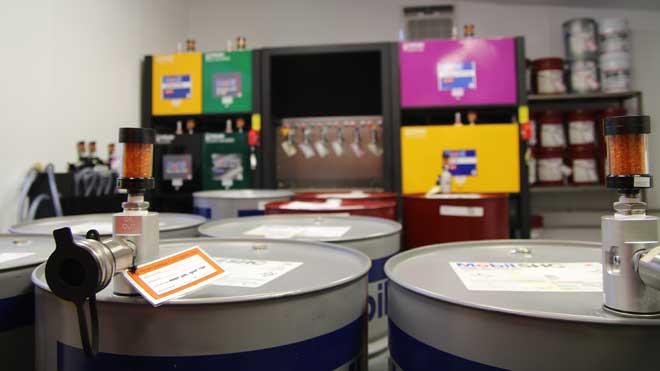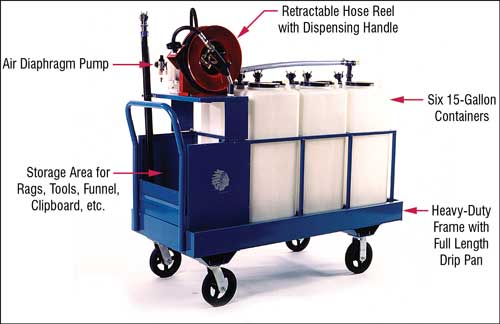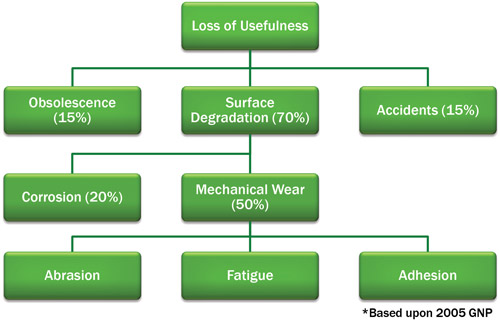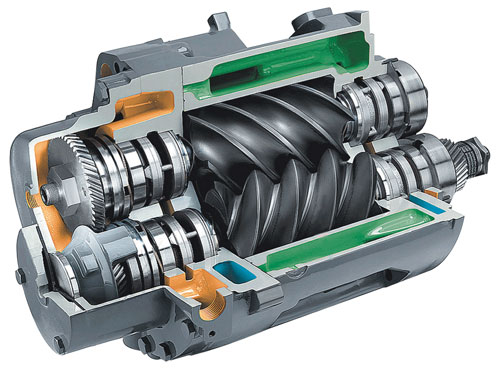Handy Tips
-
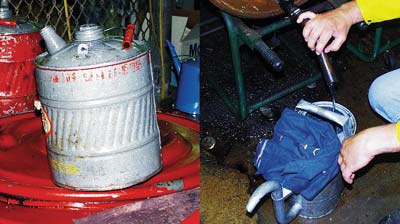
Ban the Can: Sealable, Reusable Oil Containers are Smarter Option
The oil can was in need of a major redo years ago. It was grossly outdated in terms of modern views and needs relating to lubrication and machinery reliability. Fortunately, new products sporting highly advanced features have emerged on the market. For clarification, I’ll refer to the historic products as “oil cans” and their modern replacements as S&R containers. S&R is short for “sealable and reusable”.
Author Jim Fitch, Noria Corp Machinery Lubrication (3/2010)
-
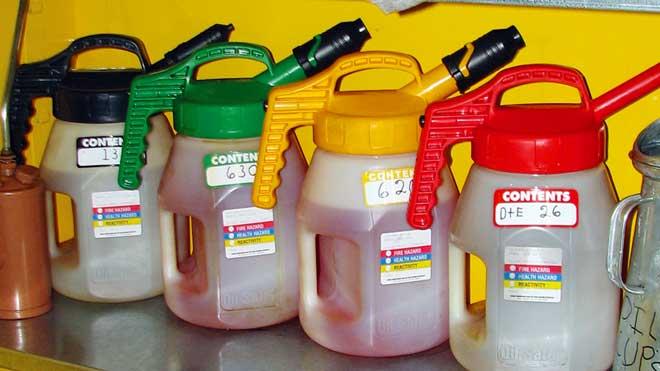
The Hazards of Mixing Lubricants
Common perceptions at many plants are that “oil is oil” and “grease is grease”. If that is the attitude that prevails at your plant, there could be some expensive damage, or much worse, just lurking below the horizon. Most everybody knows, or should know, that mixing lubricants is generally not a good idea. This article will focus on some instances of where lubricants should never be mixed, with some real-life examples of what could happen.
Machinery Lubrication (3/2009)
-
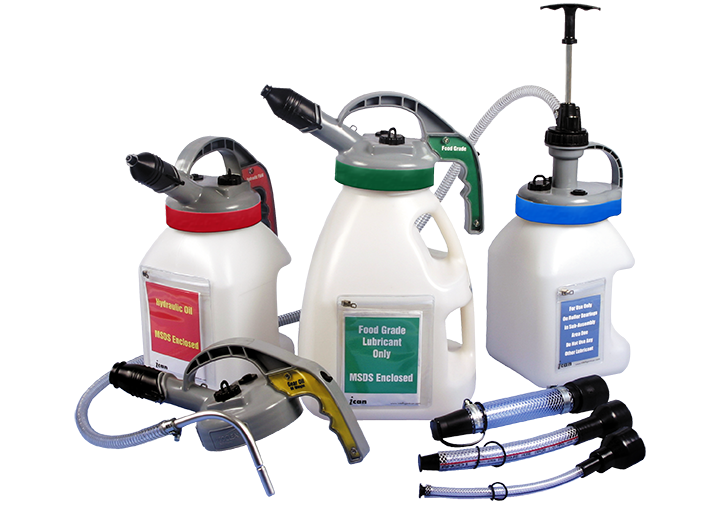
When and How to Clean a Sealable, Reusable Container
ealable and reusable (S&R) containers are becoming more and more popular in the lubrication industry. These containers, which come in many different styles and sizes to fit your needs, can have a quick impact on your lubrication program, helping to prevent particle ingression into new oils and cross-contamination of different oils.
Josh Pickle - Noria Corp Machinery Lubrication (4/2012)
-

Squeezing Every Last Cent from Your Oil
How much value do you get from a drop of oil? Consider not just the raw cost of the oil, but rather the total benefit that one drop of oil or grease provides over its anticipated life. For argument sake, let’s say that a drop has the potential to provide $1 of value before it needs changing. How much of that $1 value do you actually recoup? Ninety cents? Eighty cents? If you’re constantly adding new make-up oil due to leakage, changing oil too frequently,…
Noria Corp - Practicing Oil Analysis (3/2003)
-

Lubricant Handling and Dispensing Case Study
The effort to minimize the risk of contamination during lubricant handling and dispensing has been a recent priority at Sunoco Chemicals. The Frankford plant, located in Philadelphia, PA, manufactures phenol, acetone and alpha methyl styrene. It is the largest producer of these basic chemicals in North America and one of the largest in the world – operating almost 500 pumps and motors, a variety of gearboxes and a number of large air compressors. With production levels of …
Norp Corp - Practicing Oil Analysis (7/2001)
-

Program Management is More Than Just Design
As proponents of clean oil management and handling practices, we at Noria caution against the use of many of the most common types of top-up containers. Maintenance and operations personnel frequently use small-volume containers to expedite the top-up process. Rinsed milk jugs or other types of plastic containers, or even open-topped coffee cans with makeshift spouts bent into them are sometimes used to deliver oil to a machine.
Adam Davis - Noria Corp - Practicing Oil Analysis (11/2002)
-

Retooling Your Lubricant Storage and Handling Equipment
Are effective lubricant storage and handling practices important to facilities? Unequivocally, yes. Well-designed systems have made it possible for companies not only to realize a return on investment in a short period of time, but also to save thousands of dollars per year in maintenance-related expenditures. The facilities manager who fails to closely scrutinize his or her lubricant storage and…
Gerry Looman – Machinery Lubrication (1/2002)
-

How Particle Ingression Impacts Equipment Reliability
Ingression can be defined as a going in or entering, a right or permission to enter, or a means or place of entering. If you have attended one of Noria’s Fundamentals of Machinery Lubrication courses, I’m sure you understand the importance of reducing, minimizing and eliminating particle ingression. Because of the negative impact particle ingression has on equipment reliability, it is critical to recognize the effects, how particles enter equipment and what you can do to reduce or eliminate ingression.
Pete Oviedo - Machinery Lubrication (10/2012)
-

Managing Lubricant Viscosity to Maintain Compressor Health
If you’re running one of the approximately 140 working refineries in the United States, the last thing you need is an unplanned shutdown. But a production standstill is exactly what is at risk if you don’t keep an eye on the viscosity of the lubricating oil used in any of the rotary compressors in the plant, with the highest risk of these being the gas compressors. One minute all processes are up and running, and the next there’s a bearing failure and production stops.
Robert Kasameyer - Machinery Lubrication (08/2011)

